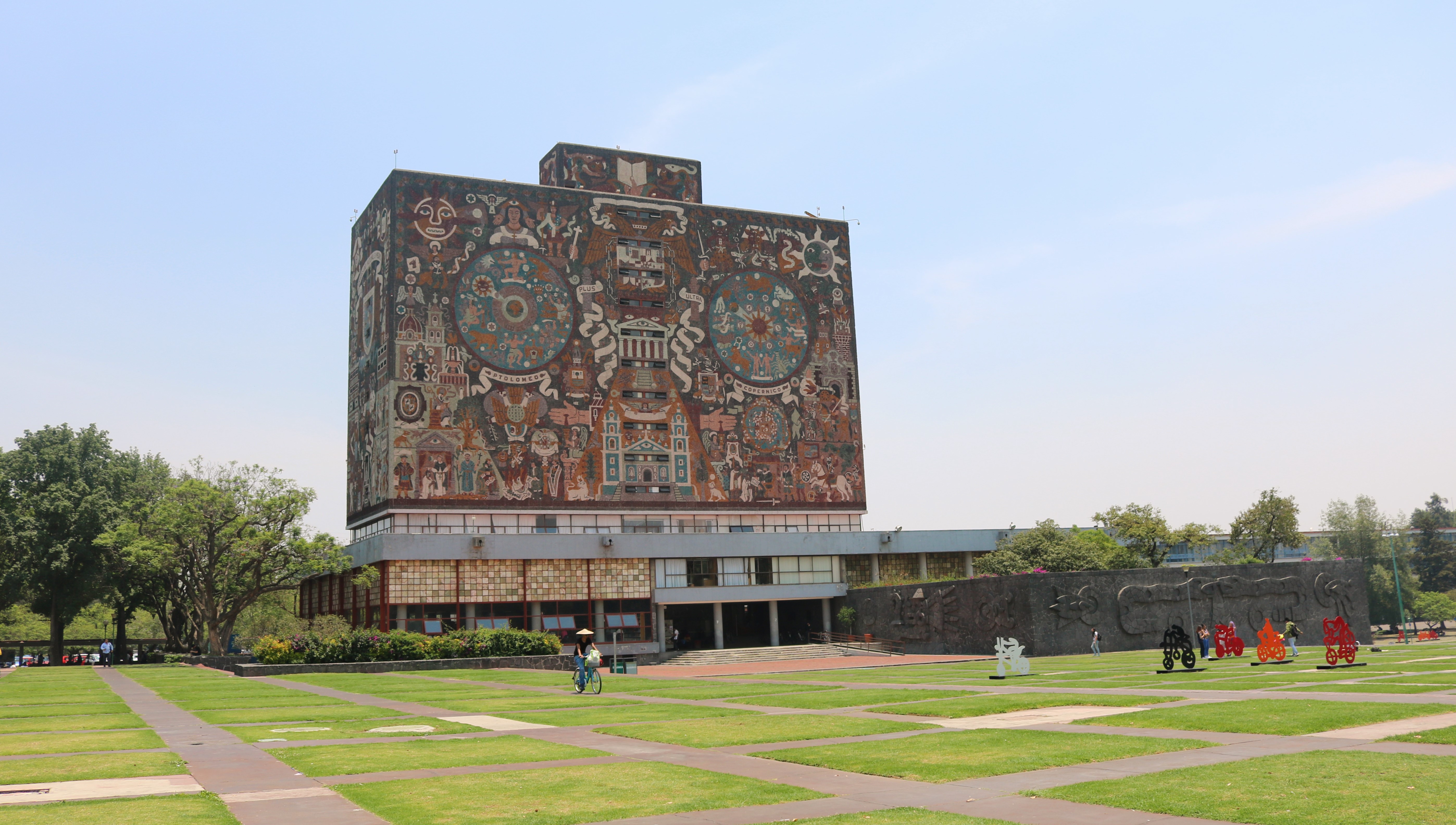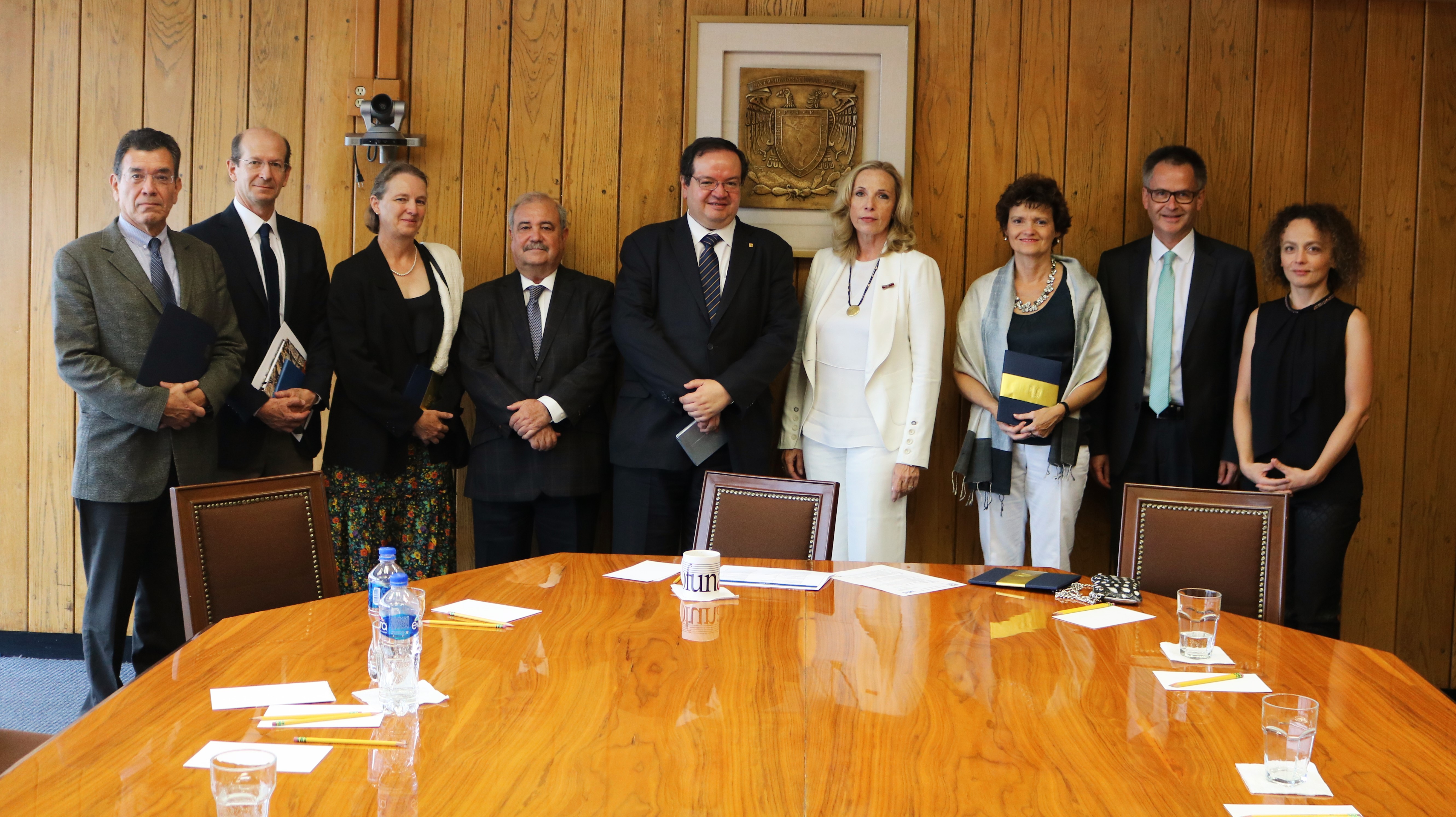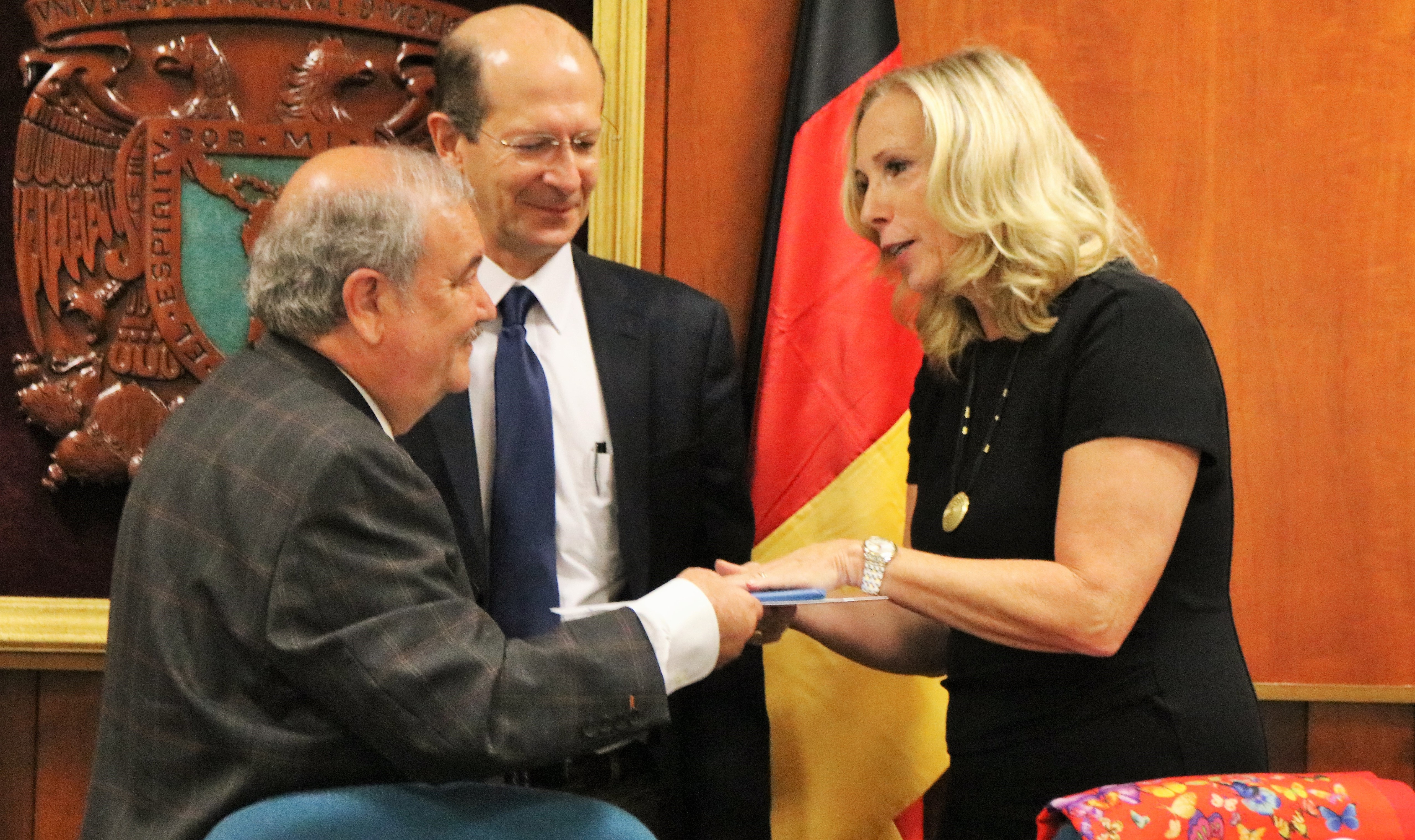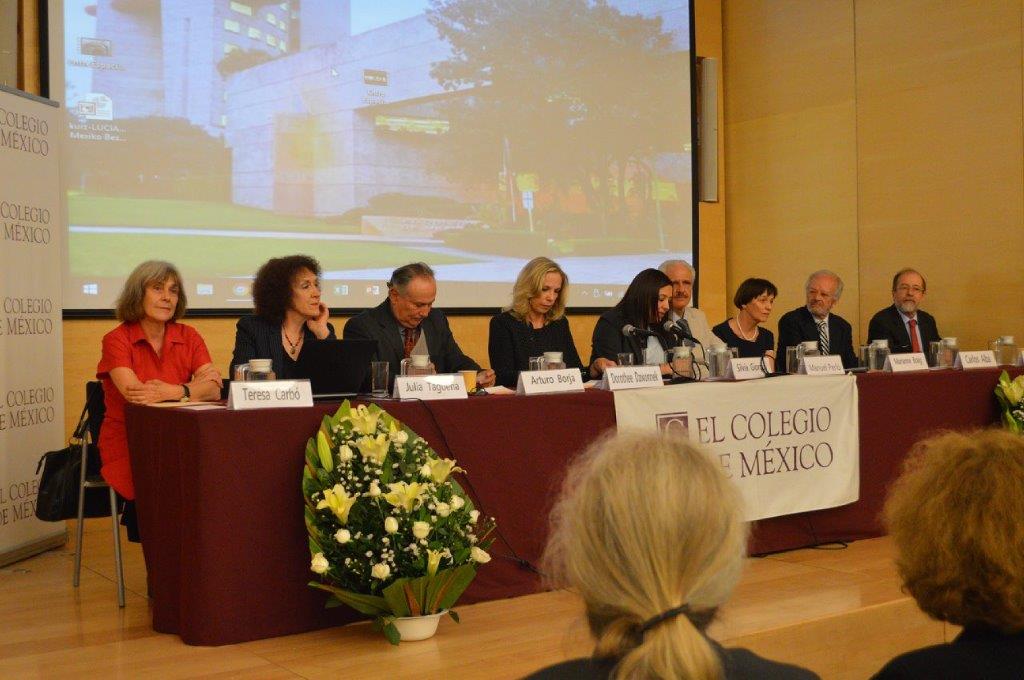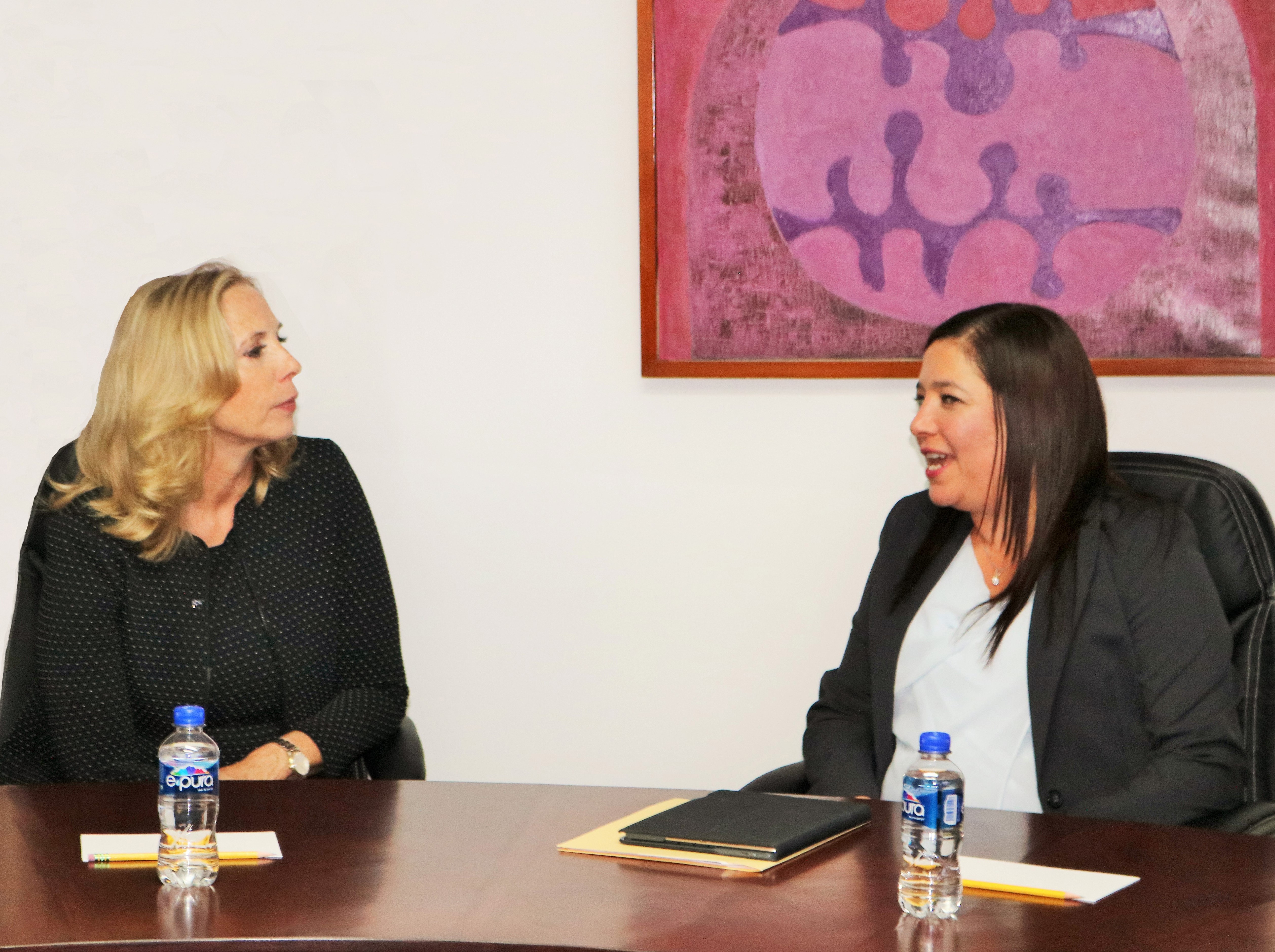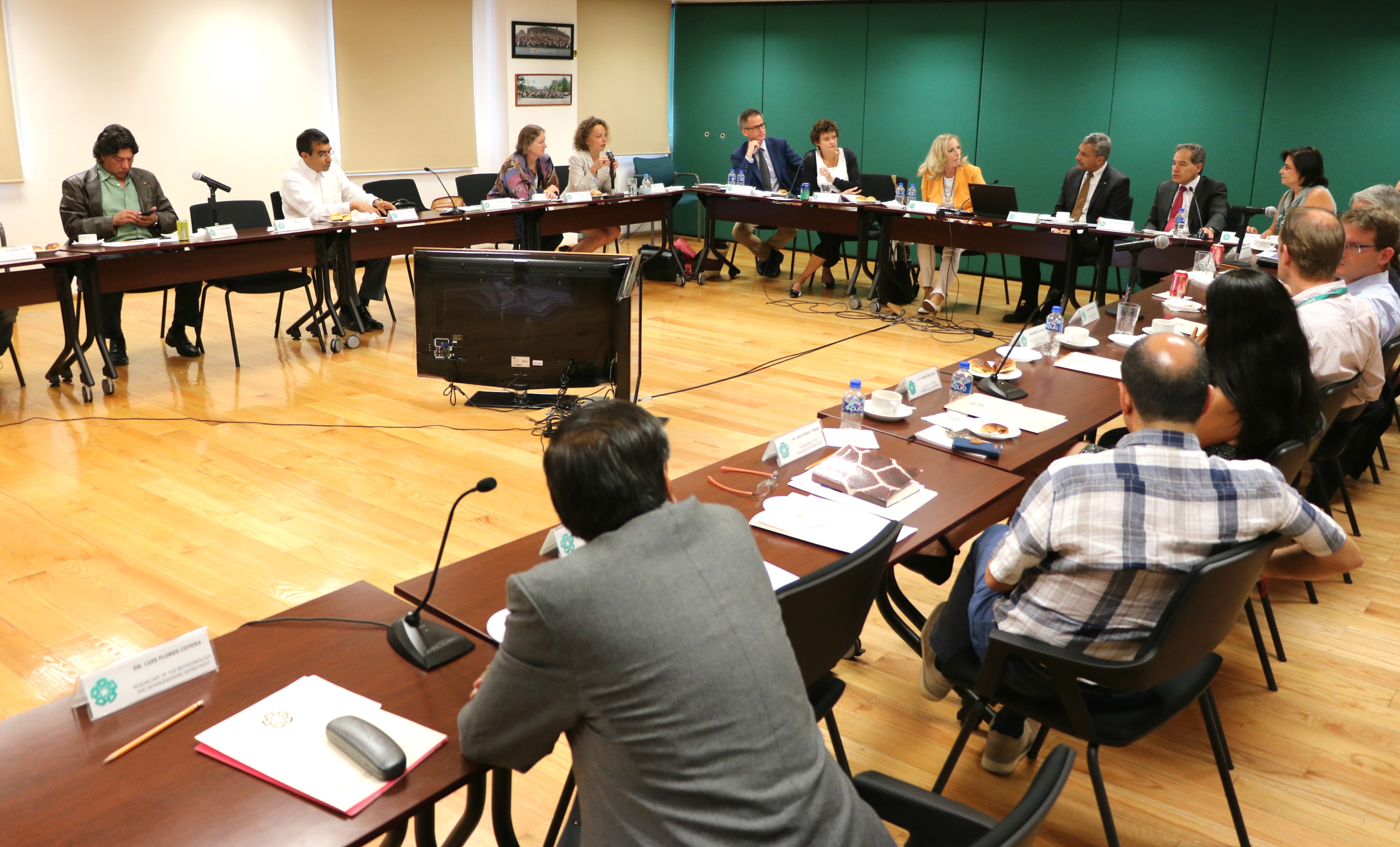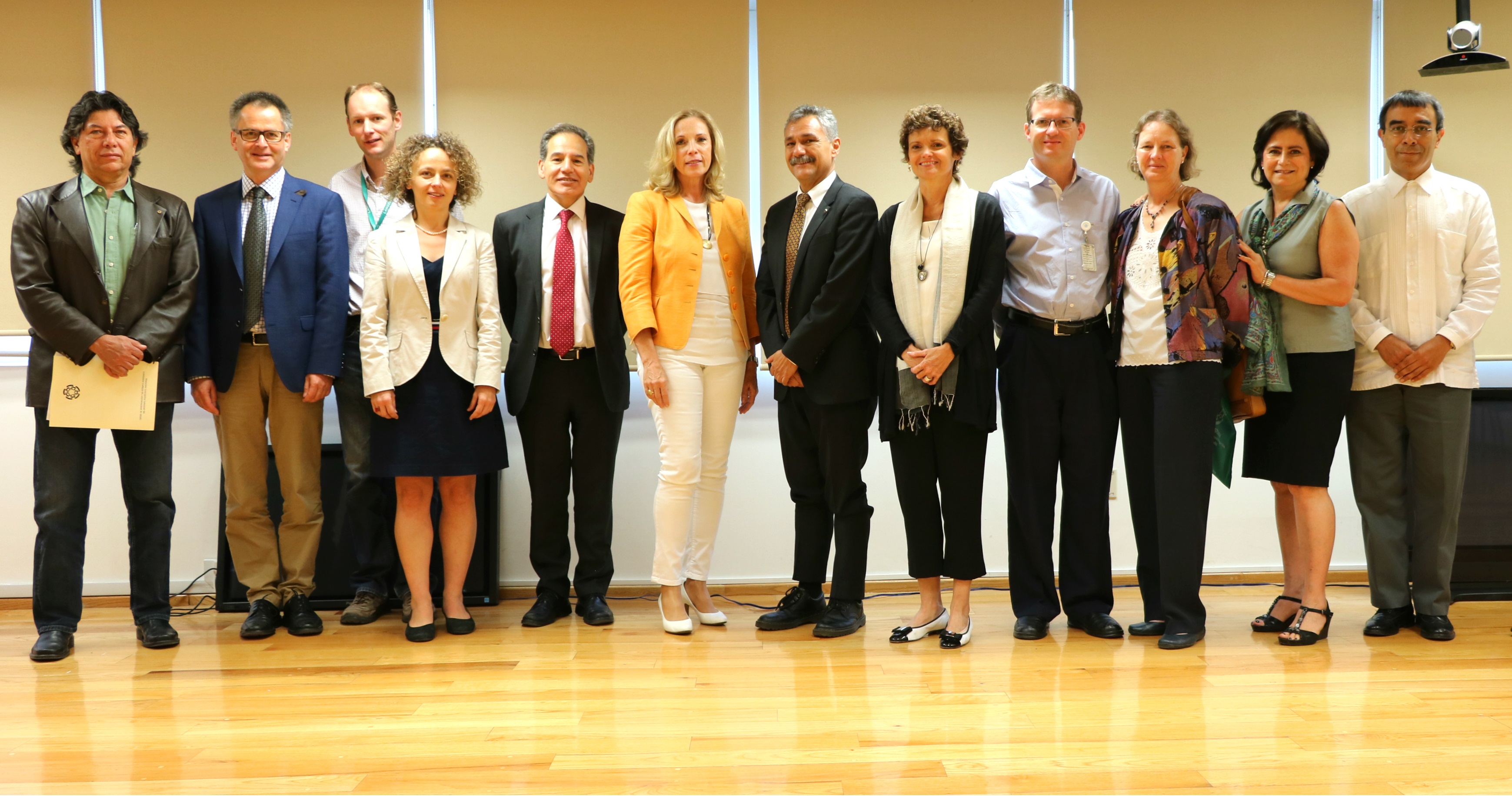DFG Secretary General Visits Mexico
Paving the way for closer German-Mexican research cooperation
(13.06.17) A university with 340,000 students and 40,000 academic staff, a long-standing collaboration with Mexico’s best training and research institution in the humanities and social sciences as well as a visit to a leading Mexican research and graduate institution made an impressive programme for DFG Secretary General Dorothee Dzwonnek’s visit to Mexico. During the multi-day visit at the end of May, together with Dr. Annette Schmidtmann, the head of the Scientific Affairs department at the DFG, she was able to form a picture of the Mexican research landscape.
Central library of UNAM
© DFG
The busy programme for the visit commenced with a plenary event at the National Autonomous University of Mexico (UNAM). As well as representatives of the university leadership, some 30 directors of UNAM’s 50 or so different institutes and centres came together to learn more about the DFG and its funding programmes and to discuss opportunities for cooperation with the German delegation. The conversation with researchers from UNAM revealed a range of bilateral research collaborations, some very extensive, in areas ranging from marine science, life sciences and biodiversity research to physics, law and various areas of the humanities. Both institutions expressed great interest in acting on the impetus created and paving the way to joint research funding with a bilateral workshop to which researchers with significant collaboration from both countries would be invited.
‘Zwischen Räumen – Entre Espacios’ (‘Between Spaces’) is the title of the first bilateral Research Training Group in Latin America, which has developed into a showcase project since it was established in 2009. During a symposium at the Colegio de Mexico (COLMEX), an important training and research institution in the humanities and social sciences, Prof. Dr. Marianne Braig from FU Berlin, the German co-spokesperson, and Prof. Dr. Carlos Alba from COLMEX, the spokesperson on the Mexican side, presented the project and its achievements. In the eight years during which the project has been funded so far, more than 80 doctoral researchers, 40 from each country, have been trained in the topic area. In her introductory address, the DFG Secretary General emphasised the significance that ‘Entre Espacios’ has achieved in globalisation research in the social and cultural sciences, through an interdisciplinary approach with influences from history, cultural anthropology, literature, political science, economics and sociology: “‘Entre Espacios’ also illustrates how globalisation processes generate not just commercial and financial flows but also a new flow of knowledge. We can take the analogy one step further and see the Research Training Group itself as being positioned between spaces – the spaces of Latin America and Europe. In this sense it’s easy to apply your definition, namely that borders are not so much barriers as domains of intensified cultural exchange.” After the event, the DFG Secretary General and the President of COLMEX, Prof. Dr. Silvia Giorguli, met to discuss ways of deepening institutional relations and mutual understanding.
Scientific event at COLMEX with presentation of the International Research Training Group ‘Between Spaces’ (from left): Teresa Carbó Pérez, Julia Tagüeña, Arturo Borja, Dorothee Dzwonnek, Silvia Giorguli, Manuel Perló, Marianne Braig, Carlos Alba and Augustin Escobar
© CONACYT
Dzwonnek and Schmidtmann were also impressed by the outstanding research infrastructure and high scientific quality at the Centre for Research and Advanced Studies (CINVESTAV). During an event lasting two and a half hours, they presented Germany as a place of research and the DFG’s funding mechanisms. Special attention was given to the support of early career researchers and international cooperation in postgraduate programmes. Twelve researchers from natural and life sciences then presented their areas of research in collaboration with German partners. The intention is to hold joint scientific workshops to promote collaborations with potential for German-Mexican research projects, which could be funded on the basis of existing agreements with Mexican funding organisations.
Scientific event at CINVESTAV with presentation of the institution, the DFG and the research activities of individual researchers in collaboration with Germany
© CINVESTAV
Since 1991 the DFG has had an agreement with long-term partner organisation CONACYT, the National Science and Technology Council, which was renewed in 2014. The director of CONACYT, Enrique Cabrero, and Dorothee Dzwonnek underlined the enormous importance of the collaboration between the two organisations to German-Mexican research cooperation and expressed mutual interest in expanding the long-standing partnership. The topics of discussion included the current status of the joint call for bilateral projects in chemistry, physics, biology, geosciences, humanities and social sciences issued last year and the continuation of this cooperation instrument over the next few years.
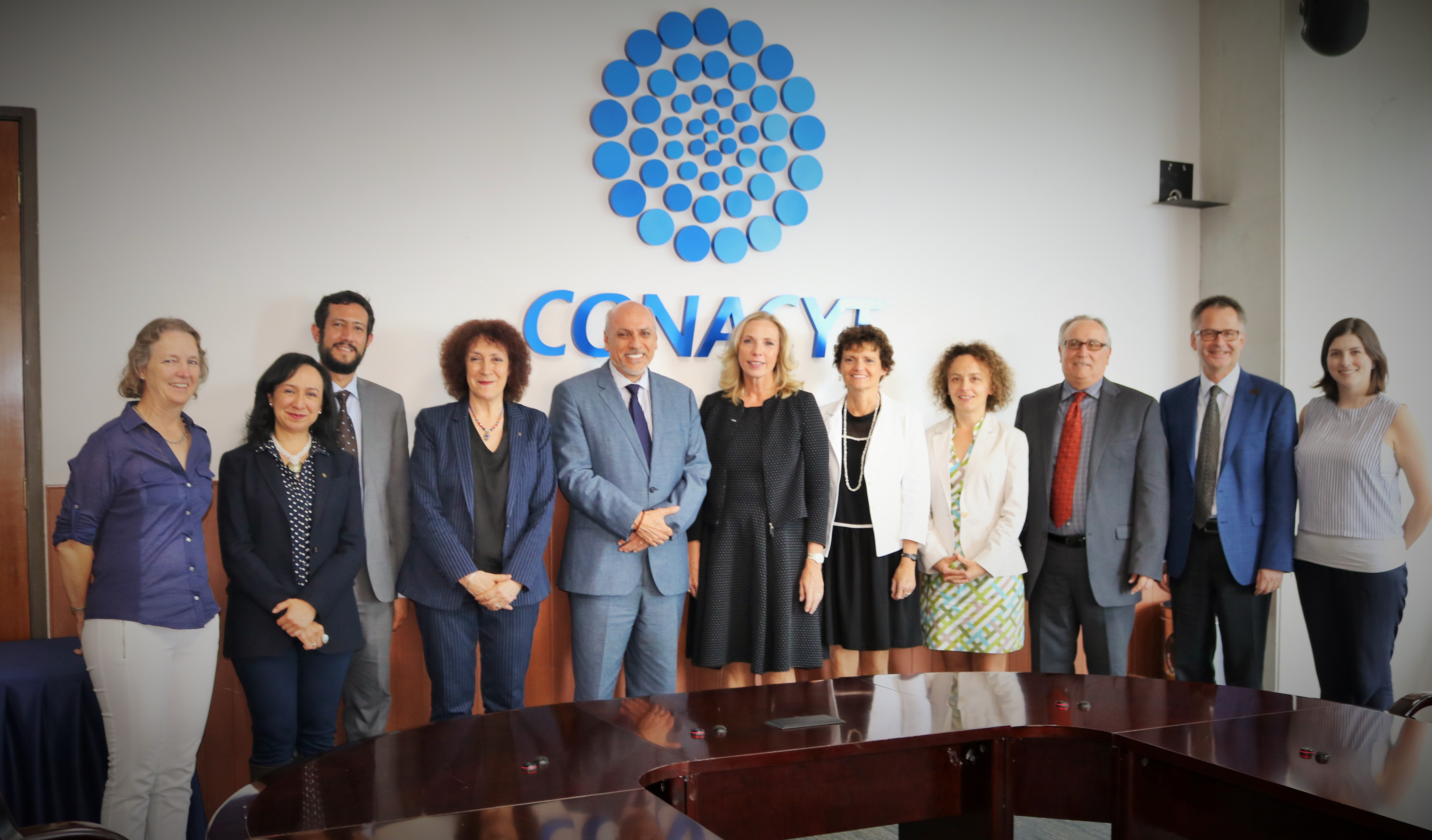
Meeting with the President of CONACYT, Enrique Cabrero (from left): Christina Siebe, Lorena Archundia, Rodrigo Bueno, Julia Tagüeña, Cabrero, Dorothee Dzwonnek, Annette Schmidtmann, Kathrin Winkler, Arturo Borja, Dietrich Halm and Laura Redondo
© DFG
Possibilities for the joint funding of coordinated programmes were also discussed.
The Secretary General’s visit was rounded off with a guided tour by Prof. Dr. Wolfgang Stinnesbeck from Heidelberg University based on the geoarchaeology and palaeontology of the Yucatán Peninsula, which included a visit to a research laboratory in Playa del Carmen and a small research museum in Dos Ojos. This item on the programme gave Dzwonnek a practical insight into current DFG-funded projects, including the investigation of the development of megafauna at the end of the Ice Age and the importance of the underwater caves of the Yucatán Peninsula for prehistoric finds.
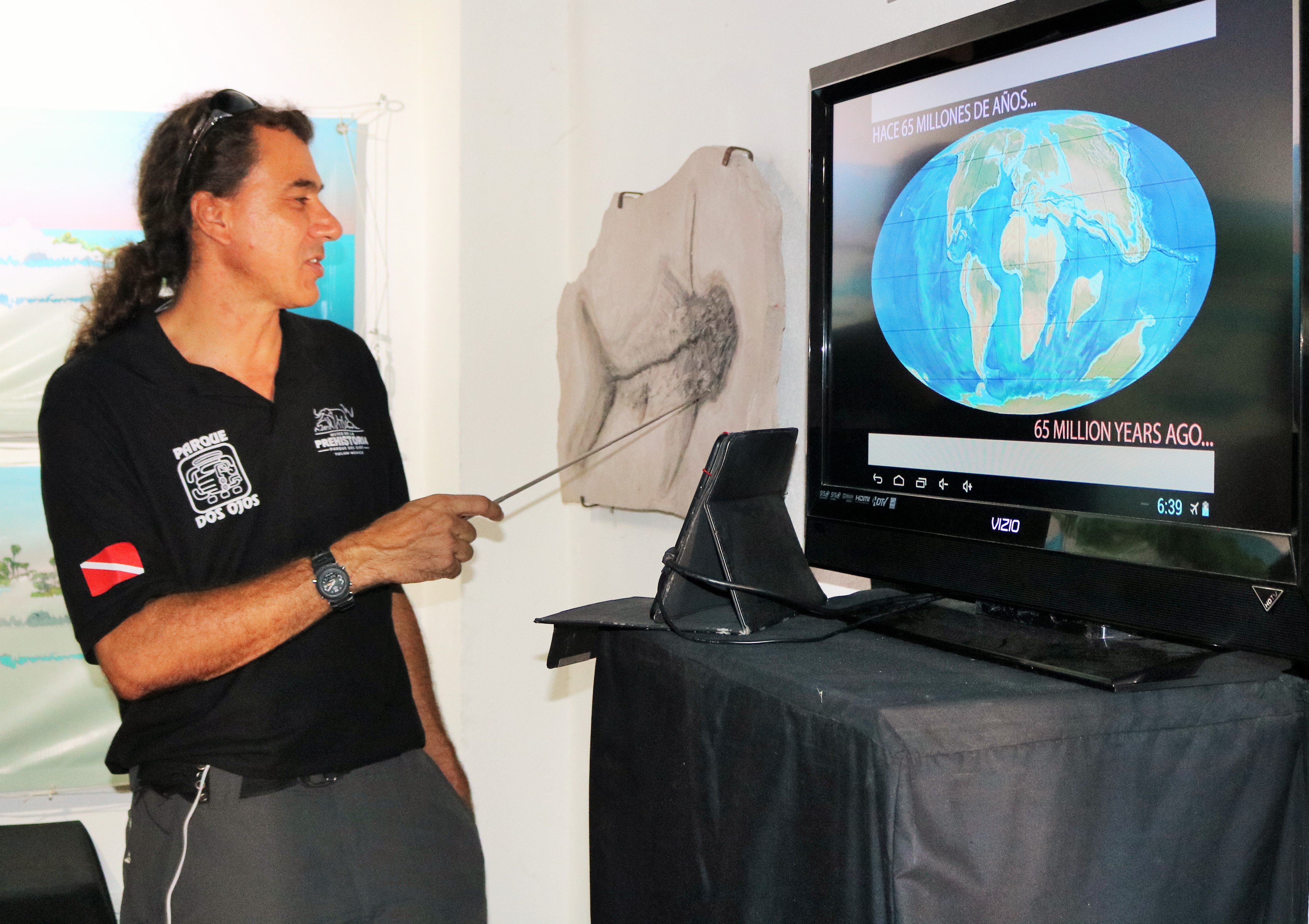
Visit to the palaeontology museum in Dos Ojos with a scientific presentation by Eugenio Aceves
© DFG
Dzwonnek explained that the trip to the various institutions in Mexico represented an important step towards deepening research cooperation between the two countries, which had created fresh impetus: “The aim is to establish and support collaborations, explore new possibilities, so that researchers on both sides of the Atlantic can share their ideas and perhaps even develop completely new and unforeseeable research questions.”
